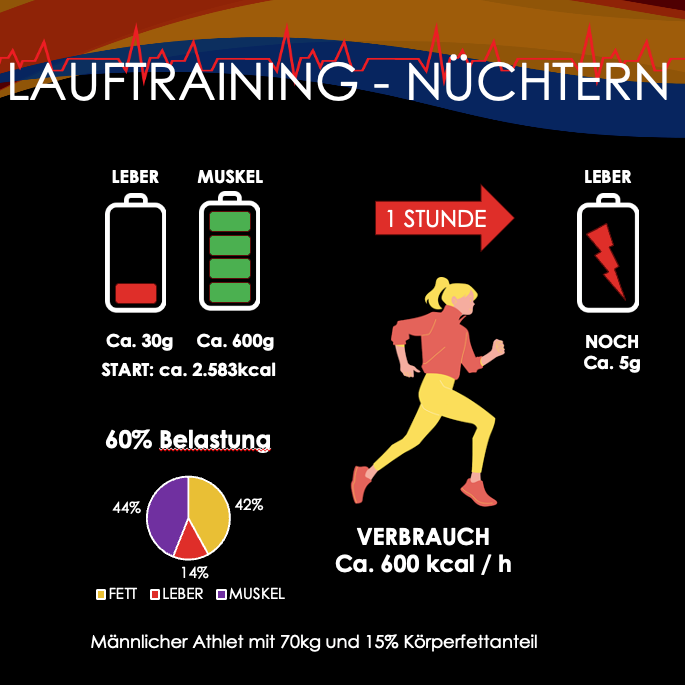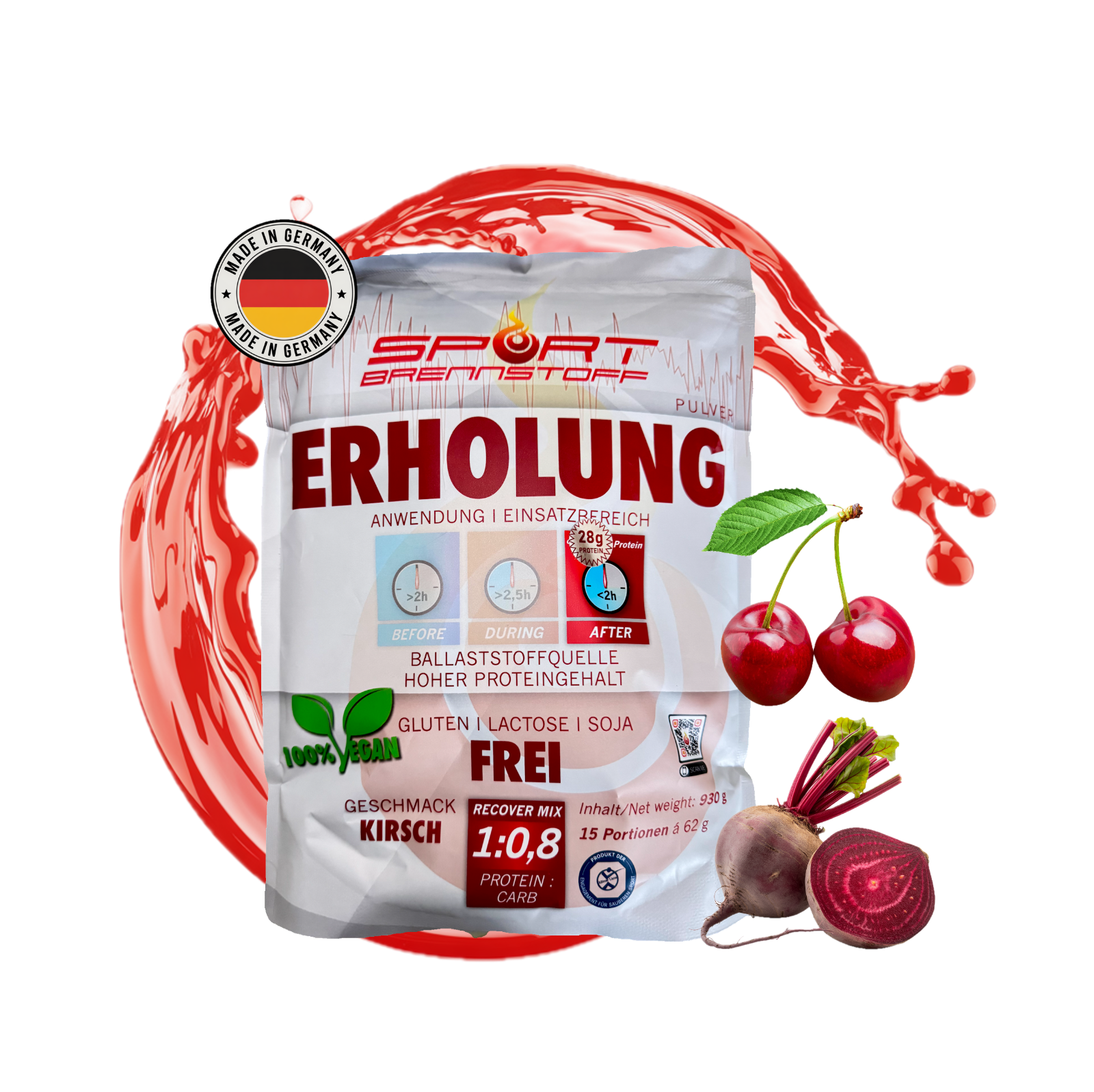Caution with fasted runs: Why you shouldn't start a run without energy for more than 45 minutes in the morning!
Many endurance athletes swear by training on an empty stomach – especially in the morning before breakfast. The goal is often to promote fat burning or boost metabolism. However, after about 45 minutes of training, running on an empty stomach can also pose risks, which are particularly important for ambitious athletes and long-distance runners.
Liver glycogen: Your energy tank is almost empty in the morning
Overnight, the body fasts to maintain its basal metabolic rate. During this process, it primarily breaks down liver glycogen to keep blood sugar levels stable. Liver glycogen is the reserve of stored glucose in the liver that supplies your muscles and, most importantly, your brain with energy.
In the morning, these stores are often severely depleted or almost empty. This means that if you start a long run of over 45 minutes without breakfast, your body will have hardly any readily available glucose from the liver.
The consequences of reduced liver glycogen during fasted running
Once liver glycogen is depleted, several problems can arise:
Performance decline: Your body has to rely more heavily on fat burning, which provides energy more slowly and reduces performance.
Hypoglycemia: Without sufficient blood sugar, your energy level drops sharply – this can result in increased stress and concentration problems.
Circulatory problems: The cardiovascular system is strained because the brain and muscles have too little readily available energy.
Poor recovery: A prolonged energy deficit impairs your recovery and muscle growth.
How can you protect yourself?
The solution is simple: A small, easily digestible, carbohydrate-rich meal or a sports drink before or during your run will give your body the necessary energy boost. This helps to keep your blood sugar levels stable and relieves the burden on your liver glycogen stores.
If you are consciously training on an empty stomach, keep the sessions short (under 45 minutes) and listen to your body's signals.
Conclusion
Running on an empty stomach isn't inherently bad, but for longer morning runs over 45 minutes, you should ensure adequate energy intake. Your body needs full liver glycogen stores for optimal performance and safety.
At SportBrennstoff you will find the right energy sources for your morning workout – depending on the intensity of the exertion, that will make you strong without putting a strain on your stomach.




















Leave a comment
All comments are moderated before being published.
This site is protected by hCaptcha and the hCaptcha Privacy Policy and Terms of Service apply.